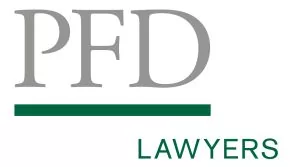In the opposition Foxmind Canada Enterprises Ltd. v. F2Z Entertainment Inc., 2015 TMOB 183, PFD represented F2Z Entertainment Inc. (F2Z), whose application to register the trademark FILOSOFIA & DESIGN was opposed by Foxmind Canada Enterprises Ltd. (Foxmind). On October 6, 2015, the Trademarks Opposition Board (TMOB) upheld F2Z's arguments regarding the inadmissibility of the evidence presented by Foxmind and dismissed Foxmind's opposition.
In this case, F2Z applied to register the trademark FILOSOFIA & DESSIN in association with board games and board game publishing and sales services. The application was mainly based on prior use of the trademark in Canada. Foxmind then initiated opposition proceedings. At the hearing, Foxmind's sole ground of opposition was non-compliance with the dates of first use claimed in the application, pursuant to section 30(b) of the Trade-Marks Act.
To support its sole ground of opposition, Foxmind produced affidavits of its president David Capon and two former Foxmind employees, Marie-Ève Lupien and Guillaume Bilodeau. These affidavits essentially aimed to establish the inaccuracy of the dates of first use of the FILOSOFIA & DESIGN trademark as claimed in the application and the use of the colour orange further claimed in the application following a 2011 incident in which the president of F2Z allegedly told an employee to change the colour of the trademark to create a cause of action against Foxmind before the Superior Court of Québec. The three affidavits were submitted together in a bound book that also included 17 exhibits (O-1 to O-17) that were indistinctly referenced by the affiants. During the course of the proceedings, F2Z cross-examined the three affiants but Foxmind chose not to cross-examine F2Z's two affiants (the company's president and graphic designer).
In its written submissions, F2Z raised the issue of the irregularities of Foxmind's affidavits and exhibits, alleging that it had not sworn all of the exhibits in individual endorsements as required by theFederal Court Rules, that the exhibits had not been filed individually in support of each of the affidavits but collectively, that they contained handwritten entries and that certain exhibits should have been materially produced. In sum, F2Z claimed that these mistakes were not merely technical deficiencies and, in fact, impacted substantially upon the validity of the affidavits and exhibits and should therefore inadmissible.
The TMOB fully agreed with F2Z's arguments on this crucial point. Citing F2Z's written submissions, the TMOB concluded that the anomalies in the evidence filed by Foxmind were more than mere technical deficiencies and rejected the 17 exhibits of the three affidavits filed by Foxmind. Without supporting exhibits and now containing only unsubstantiated allegations, the three affidavits filed by Foxmind lost much of their probative force. To mitigate the setback, on the morning of the hearing, approximately one year after F2Z had filed its written submissions opposing Foxmind's evidence, Foxmind tried to file a new affidavit sworn by the company's president (identical to the affidavit that was initially filed) with the 17 exhibits sworn individually. Again, the TMOB upheld the arguments by F2Z, which opposed the filing based on unreasonable delay and late filing, the lack of reasons justifying such delay and the prejudice that F2Z would suffer should the TMOB allowed the evidence since it would be denied the right to cross-examine Foxmind's president on the new exhibits and the allegations contained his affidavit.
In the end, two of the affidavits filed by Foxmind were granted very little weigh and the third was granted no weigh at all. In addition, on the merit of the case, the TMOB concluded that Foxmind had not met its initial burden of proving the facts on which it had based its sole ground of opposition and that F2Z's evidence was amply sufficient to justify each of the dates of first use claimed as well as the use of the colour orange in its trade-mark. The TMOB dismissed Foxmind's opposition.
Comments
In trade-mark opposition cases, the parties' evidence is based on affidavit evidence and cross-examinations, and parties must therefore be rigorous in managing and producing evidence. In such specialized cases, it is also very important to cross-examine the affiants since, without cross-examinations, it may be presumed that the other party accepts the declarant's allegations. At the very least, the assessment of their credibility will be at the sole discretion of the TMOB, unless the other party makes thorough representations and written submissions on this matter, which was not the case in these proceedings.
In sum, a lack of rigour in producing and managing evidence may severely impair the chances of success of the opposition procceedings or the trademark application, as illustrated by the Foxmind case.
About Mackrell International - Canada - Prévost Fortin D'Aoust is a Quebec based business law firm with offices in Montreal, Saint-Jérôme, Boisbriand, Sainte-Agathe-des-Monts and Laval, and a member of Mackrell International. Mackrell International - Canada is comprised of four independent law firms in Alberta, British Columbia, Ontario and Quebec. Each firm is regionally based and well-connected in our communities, an advantage shared with our clients. With close relations amongst our Canadian member firms, we are committed to working with clients who have legal needs in multiple jurisdictions within Canada.
The content of this article is intended to provide a general guide to the subject matter. Specialist advice should be sought about your specific circumstances.

